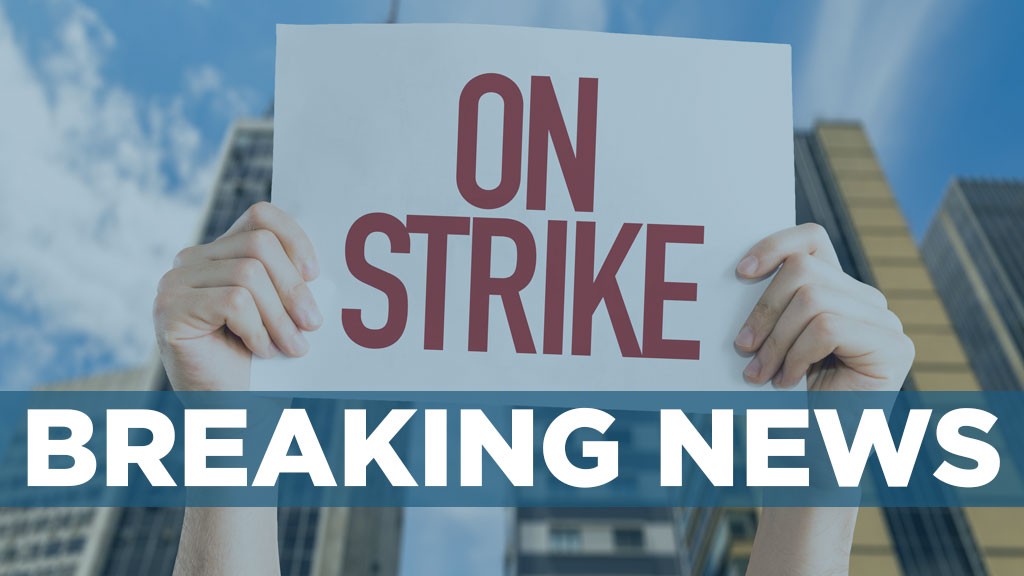The five-week-old strike by Rempel Bros. Concrete truck drivers is over.
A tentative deal was struck around 2 p.m. on June 23, with the ratification vote happening at 7 p.m. The offer, from employer Lehigh Hanson, was accepted by 62 of the Teamsters Local 213 members. But 34 Teamsters voted against the four-year deal, which is retroactive to Jan.1.
“We can’t make everyone happy,” says Barry Capozzi, business agent for Teamsters Local 213.
Members of the International Union of Operating Engineers Local 115, who also work at the Rempel site, also voted to ratify the offer in what were poly-party negotiations. The IUOE represented 101 workers in this dispute with Rempel Bros. Concrete.
“It was a very tough set of negotiations. The employer would not negotiate, which led to why we went on strike,” Capozzi says.
The former chair of the Labour Relations Board, Jacquie de Aguayo, was brought in for the three-day negotiating session.
“She was great. Very helpful to the process,” Capozzi says.
Sticking points were working hours, the right to refuse excessive overtime, missed breaks and wages.
“We got language in the agreement of assurance of breaks, language to help relieve longer hours and scheduling,” says Capozzi.
“Some desperately needed pours will no doubt begin this weekend, and our members will have peace of mind that their jobs are secure for the future,” added Mike Mayo, IUOE Local 115 business representative and lead bargaining agent for the concrete dispute, in a statement.
There’s also a roughly 14 percent wage increase over the life of the contract. Teamsters members will get a retroactive wage adjustment between three and four per cent.
On Sept.1 of this year there’s a 2.75 per cent hike. On Sept.1, 2023, a three per cent raise. On Jan. 1, 2024, another three per cent increase. And on Jan. 1, 2025, the final year of the contract, a two per cent bump.
Brian Cochrane, IUOE 115 business manager says, “The company finally realized that long work days and six-day work weeks had taken a toll our members’ health and safety. The construction industry moves at a rapid pace, and at the end of the day everyone wants to go home to their families and feel accomplished with the hard work they have done for the day, and today operating engineers accomplished that.”
While some workers returned to their jobs on June 24, it will take time to return to full capacity. Yard workers will be the first onsite.
“We can’t get everyone back to work (immediately),” Capozzi says of the drivers.
Concrete silos have to be prepped and mechanics are doing motor vehicle inspections on trucks that have been sitting idle for five weeks.
The strike was buttressed by 110 Ocean Concrete employees and 24 Allied Ready Mix Concrete employees. Most were members of Teamsters Local 213, so they refused to cross picket lines.
Because the three Lehigh Hanson-owned companies supply roughly a third of Greater Vancouver’s concrete supply, the concrete deficit had a notable impact on projects, large and small, in the area.
According to an IUOE release, the strike initially impacted more than 50 per cent of the construction projects in Metro Vancouver and the Fraser Valley, covering residential, industrial and public infrastructure projects such as the Pattullo Bridge Replacement and the Broadway Subway.
But Capozzi says the delays aren’t over.
“Hopefully everyone will understand that the ready-mix companies are not operating at full capacity because of a shortage of cement power,” he notes.
Lehigh Hanson has one plant in the Lower Mainland and Lafarge, the second. Lafarge’s Richmond plant, which is a major cement supplier in B.C., Alberta and the Northwestern U.S., has been operating at a reduced level following a May 31 fire in a pre-heater tower.
Capozzi notes there’s already been layoffs due to the powder shortage. Blaming the striking concrete drivers for construction delays is only one part of the story, he says.
If everyone was working and there was no labour dispute, work would have come to a halt about three weeks ago because of the material shortages in the concrete industry, adds Capozzi.










Recent Comments